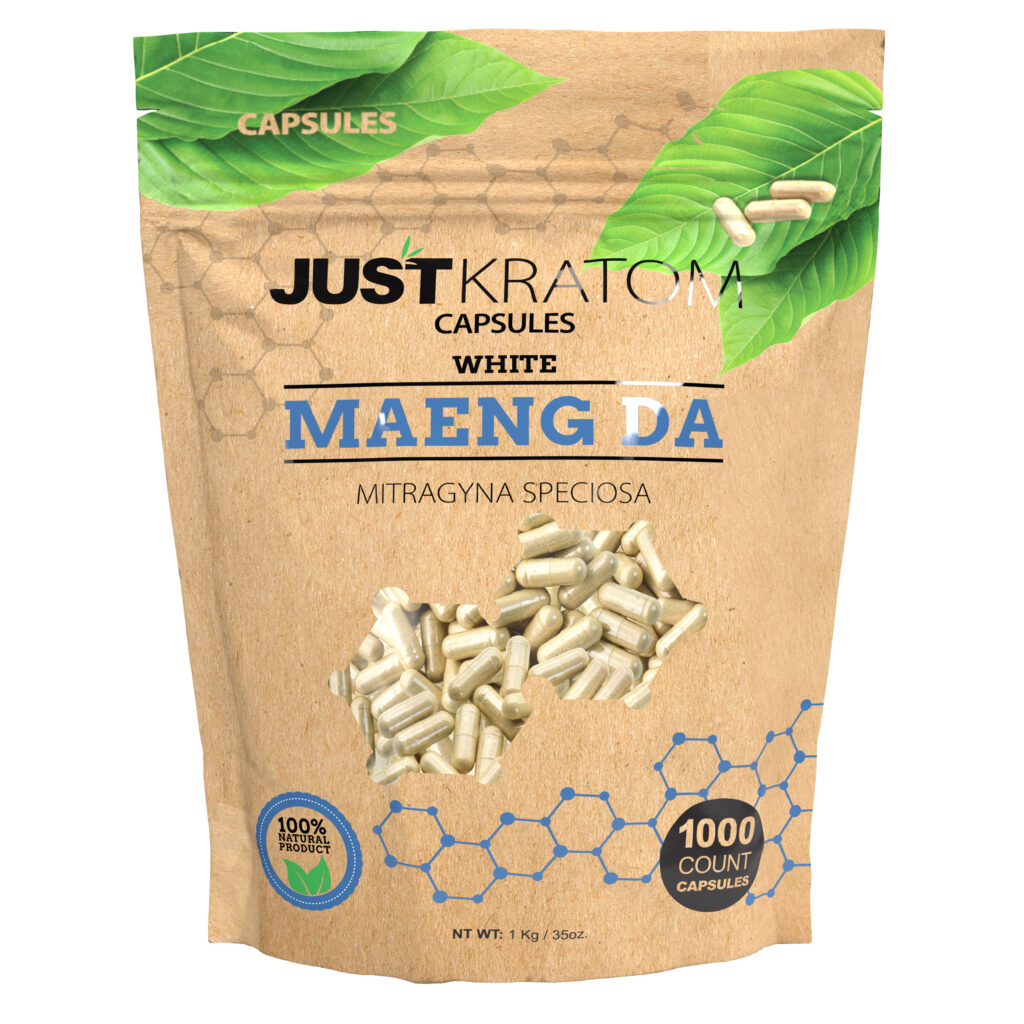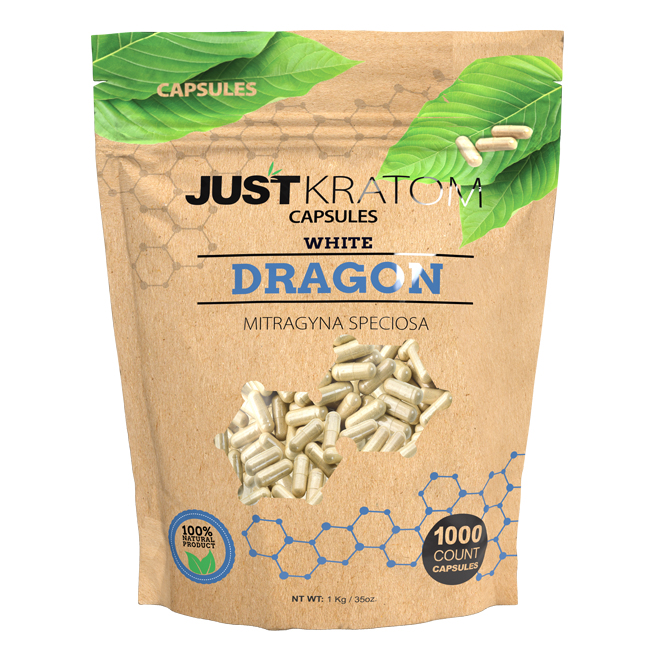Mechanism of Action
Understanding how kratom capsules impact focus and productivity requires exploring their mechanism of action.
Altered Neurotransmitters
Kratom capsules exert their effects by interacting with opioid receptors in the brain. Primarily, they bind to mu-opioid receptors, similar to other opioids like morphine. This interaction triggers a cascade of events that ultimately lead to changes in neurotransmitter levels.
Specifically, kratom alkaloids, such as mitragynine and 7-hydroxymitragynine, modulate the release and activity of dopamine, norepinephrine, and serotonin. Dopamine is associated with reward, motivation, and focus, while norepinephrine plays a role in alertness and arousal. Serotonin contributes to mood regulation and cognitive function.
By influencing these neurotransmitters, kratom capsules can potentially enhance cognitive performance, improve focus, and increase productivity. However, it’s important to note that the effects of kratom can vary significantly depending on dosage, individual sensitivity, and other factors.
Pain Modulation
Understanding how kratom capsules impact focus and productivity requires exploring their mechanism of action.
Kratom capsules exert their effects by interacting with opioid receptors in the brain. Primarily, they bind to mu-opioid receptors, similar to other opioids like morphine. This interaction triggers a cascade of events that ultimately lead to changes in neurotransmitter levels.
Specifically, kratom alkaloids, such as mitragynine and 7-hydroxymitragynine, modulate the release and activity of dopamine, norepinephrine, and serotonin. Dopamine is associated with reward, motivation, and focus, while norepinephrine plays a role in alertness and arousal. Serotonin contributes to mood regulation and cognitive function.
By influencing these neurotransmitters, kratom capsules can potentially enhance cognitive performance, improve focus, and increase productivity.
Effects on Cognitive Function
The effects of kratom on cognitive function are multifaceted and complex. Kratom’s active alkaloids interact with opioid receptors in the brain, particularly mu-opioid receptors, leading to alterations in neurotransmitter levels.
Improved Focus and Concentration
Understanding how kratom capsules impact focus and productivity requires exploring their mechanism of action.
Kratom capsules exert their effects by interacting with opioid receptors in the brain. Primarily, they bind to mu-opioid receptors, similar to other opioids like morphine. This interaction triggers a cascade of events that ultimately lead to changes in neurotransmitter levels.
Specifically, kratom alkaloids, such as mitragynine and 7-hydroxymitragynine, modulate the release and activity of dopamine, norepinephrine, and serotonin. Dopamine is associated with reward, motivation, and focus, while norepinephrine plays a role in alertness and arousal. Serotonin contributes to mood regulation and cognitive function.
By influencing these neurotransmitters, kratom capsules can potentially enhance cognitive performance, improve focus, and increase productivity. However, it’s important to note that the effects of kratom can vary significantly depending on dosage, individual sensitivity, and other factors.
- Increased Dopamine: Kratom stimulates dopamine release, which is linked to feelings of pleasure, motivation, and focus.
- Enhanced Norepinephrine Levels: Norepinephrine contributes to alertness, arousal, and mental clarity. Kratom may increase norepinephrine, promoting wakefulness and concentration.
- Mood Regulation Through Serotonin: Serotonin plays a role in mood regulation and cognitive function. By affecting serotonin levels, kratom may indirectly contribute to improved focus and productivity by influencing overall mental well-being.
Enhanced Memory and Learning
Kratom’s potential benefits for cognitive function stem from its interaction with neurotransmitters.
Increased Dopamine: Kratom stimulates dopamine release, which is linked to feelings of pleasure, motivation, and focus.
Enhanced Norepinephrine Levels: Norepinephrine contributes to alertness, arousal, and mental clarity. Kratom may increase norepinephrine, promoting wakefulness and concentration.
Mood Regulation Through Serotonin: Serotonin plays a role in mood regulation and cognitive function. By affecting serotonin levels, kratom may indirectly contribute to improved focus and productivity by influencing overall mental well-being.
Dosage and Administration
Dosage and administration play a crucial role in determining the effects of kratom capsules on focus and productivity.
Recommended Dosages for Focus and Productivity
Dosage recommendations for kratom vary significantly depending on individual factors such as body weight, metabolism, tolerance, and desired effects.
It is generally recommended to start with a low dose (1-2 grams) and gradually increase it until the desired effects are achieved.

Higher doses may lead to stronger effects, but they also carry a greater risk of adverse side effects.
Kratom capsules can be taken orally. They typically contain standardized extracts of kratom leaves, ensuring consistent dosing.
Timing of Consumption
Dosage and administration play a crucial role in determining the effects of kratom capsules on focus and productivity.
Dosage recommendations for kratom vary significantly depending on individual factors such as body weight, metabolism, tolerance, and desired effects.
It is generally recommended to start with a low dose (1-2 grams) and gradually increase it until the desired effects are achieved.
Higher doses may lead to stronger effects, but they also carry a greater risk of adverse side effects.
Kratom capsules can be taken orally. They typically contain standardized extracts of kratom leaves, ensuring consistent dosing.
The timing of kratom consumption can also influence its effects on focus and productivity.
- For daytime use to enhance focus and alertness, it’s often recommended to take kratom capsules in the morning or early afternoon.
- If aiming for a mood-boosting effect or improved well-being, taking kratom later in the day might be more suitable.
Factors Influencing Effectiveness
Many factors can influence the effectiveness of kratom in improving focus and productivity. Understanding these factors is crucial for maximizing potential benefits while minimizing risks.
Individual Variability
Many factors can influence the effectiveness of kratom in improving focus and productivity. Understanding these factors is crucial for maximizing potential benefits while minimizing risks.
- Individual Variability: People respond to substances like kratom differently due to variations in genetics, body chemistry, metabolism, and past experiences with stimulants or opioids. What works well for one person may have little effect on another.
- Dosage: The amount of kratom consumed significantly impacts its effects. Starting with a low dose and gradually increasing it until the desired effect is achieved is important. Too high a dose can lead to undesirable side effects.
- Strain and Alkaloid Content: Different kratom strains contain varying concentrations of active alkaloids like mitragynine and 7-hydroxymitragynine, which have different properties. Some strains are more potent than others and may be better suited for focus enhancement.
- Method of Consumption: The way kratom is consumed affects its absorption rate and onset time. Capsules offer a standardized dose, while chewing fresh leaves or making tea may result in faster but less predictable effects.
- Tolerance: Regular use of kratom can lead to tolerance, meaning higher doses are needed to achieve the same effects. This can make it challenging to maintain desired levels of focus over time.
- Drug Interactions: Kratom can interact with other medications, including antidepressants, pain relievers, and stimulants. It’s essential to consult a healthcare professional about potential interactions before using kratom.
Tolerance and Dependence
Numerous factors can influence the effectiveness of kratom in improving focus and productivity.
Individual responses to kratom vary significantly due to genetic differences, body chemistry, metabolism, and past experiences with stimulants or opioids. What works well for one person might have little effect on another.
Dosage plays a crucial role. Starting with a low dose (1-2 grams) and gradually increasing it until the desired effect is achieved is recommended. Higher doses may lead to stronger effects but also carry a greater risk of adverse side effects.
The type of kratom used matters. Different strains contain varying concentrations of active alkaloids, which have different properties. Some strains are more potent than others and may be better suited for focus enhancement.
Tolerance can develop with regular kratom use, requiring higher doses to achieve the same effects. This can make it challenging to maintain desired levels of focus over time.
Safety and Potential Risks
While kratom is touted as a potential aid for enhancing focus and productivity, it’s crucial to approach its use with caution. Kratom’s interaction with opioid receptors in the brain can lead to both beneficial and potentially harmful effects. Understanding the risks associated with kratom consumption is essential before experimenting with this substance.
Side Effects
Safety and potential risks are important considerations when using kratom for cognitive enhancement.
- Addiction: Kratom can be habit-forming, leading to dependence and addiction. Regular use may result in withdrawal symptoms when stopped abruptly.
- Opioid Side Effects: Because kratom interacts with opioid receptors, it can cause side effects similar to opioids, such as drowsiness, constipation, nausea, and respiratory depression. These risks increase with higher doses.
- Liver Damage: There are reports of liver damage associated with kratom use, particularly with long-term or excessive consumption. Regular monitoring of liver function is recommended if using kratom for prolonged periods.
- Cardiovascular Effects: Kratom may affect heart rate and blood pressure, potentially posing risks for individuals with existing cardiovascular conditions.
- Interactions with Medications: Kratom can interact with other medications, including antidepressants, pain relievers, and stimulants. It is essential to consult a healthcare professional about potential interactions before using kratom.
It’s important to note that research on the long-term effects of kratom is limited, and more studies are needed to fully understand its potential risks and benefits.

Drug Interactions
Safety and potential risks associated with kratom should be carefully considered before use.
While some individuals may experience positive effects on focus and productivity, it’s crucial to be aware of the potential downsides.
- Addiction: Kratom can be habit-forming, leading to dependence and withdrawal symptoms when stopped abruptly.
- Opioid Side Effects: As kratom interacts with opioid receptors, it can cause side effects like drowsiness, constipation, nausea, and in severe cases, respiratory depression.
- Liver Damage: There have been reports linking long-term or excessive kratom use to liver damage. Regular monitoring of liver function is recommended for those using kratom regularly.
- Cardiovascular Effects: Kratom may affect heart rate and blood pressure, potentially posing risks for individuals with existing cardiovascular conditions.
- Drug Interactions: Kratom can interact with other medications, including antidepressants, pain relievers, and stimulants. Consulting a healthcare professional about potential interactions before using kratom is essential.
Limited research exists on the long-term effects of kratom, highlighting the need for caution and further investigation into its safety profile.
Buy Kratom capsules for mental focus and energy
- Why Are THC Beverages So Popular Among Millennials? - November 10, 2025
- What Is The Aftercare For A Liquid Facelift? - November 9, 2025
- What Age Can U Get Lip Filler - November 8, 2025
